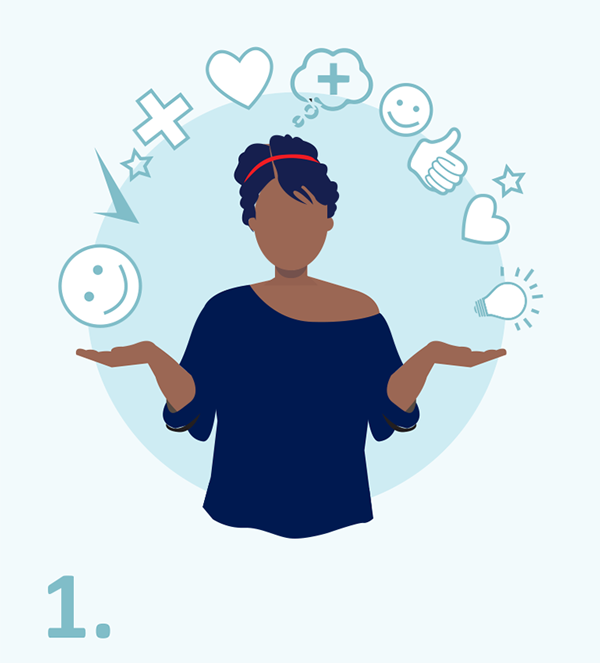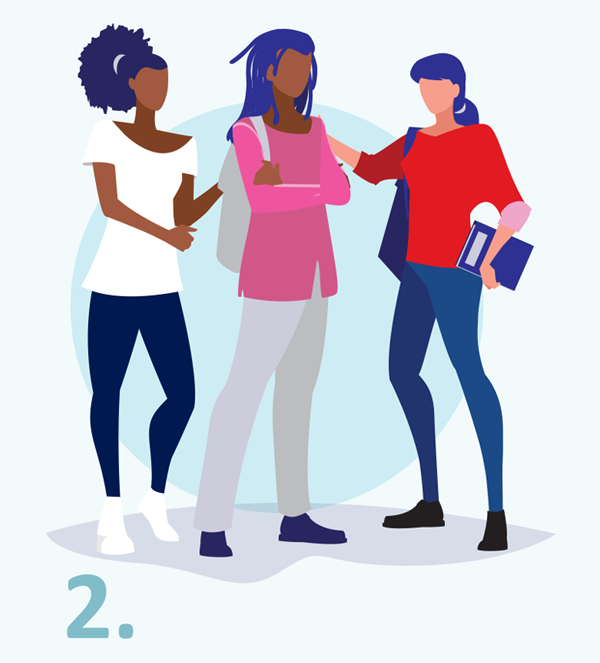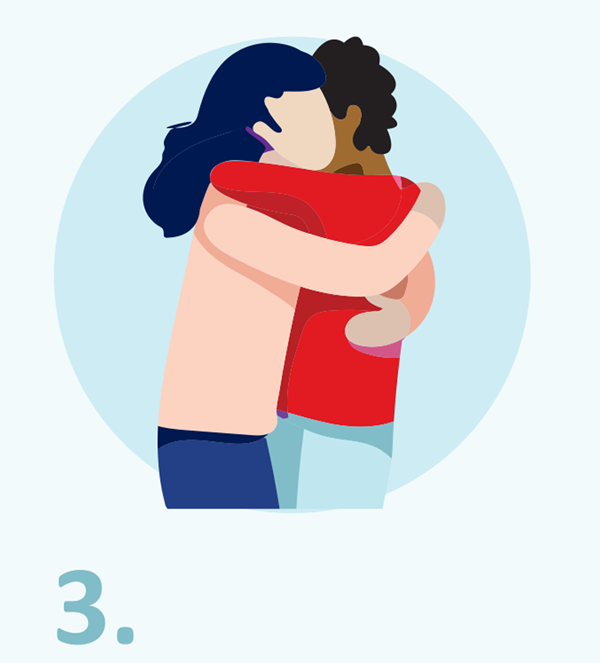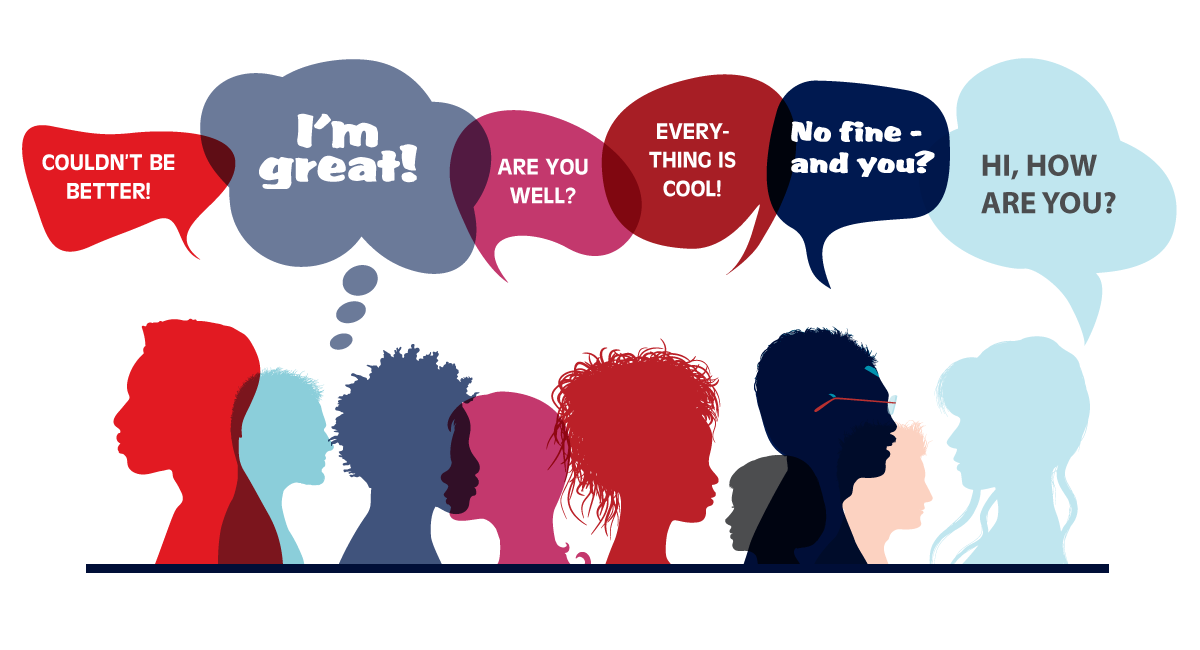We all use these superficial greetings, hiding behind the familiar to avoid reality. It’s convenient, but it’s not really truthful. Truth is that with Covid-19 most of us are having a rough time. So don’t pretend to be brave, hanging in there with a smiling face, just waiting for life to return normal. It probably won’t.
Rather work on your mental health.

Be mindful of your atitude:
Become self-aware, noticing when you are complaining or being negative. To counter this identify and feel grateful for something good. It is easier to complain, but by learning to focus on the positive you will experience your mood shift to a happier state.

Build your friendships:
Identify a few people you truly care for – then think of ways to deepen your friendships. Remind them of how much you care for them, and appreciate their special characteristics.

Ask for help:
Share any challenging feelings with a special friend. By giving attention to any care or concern you can avoid it becoming a mental health issue. If reluctant to reach out to a friend, get help from your professional, confidential, free EAP counsellors.
Don’t suffer in silence!
Yes, you may only be a one person, but maintaining your wellbeing also contributes to the wellbeing of others in South Africa.
Currently in South Africa (end September 2020) there have been over 672,000 Covid-19 infections, and tragically just over 16,500 have died. Whilst this could seem insignificant compared to the more than a million mortalities worldwide, consider this. Yet another 43 000 SA’s have died of unknown causes during this period as compared to the previous year. These deaths may be unidentified Covid-19 cases, or they may be persons with other illnesses who could not get to, or were reluctant, to go to hospital owing to the Covid-19 crisis. This might bring the figure of additional deaths at this time to well over 50,000 more than the same period last year.
Whilst the government has reduced lockdown measures to Level 1, it remains a huge dilemma for authorities how to manage measures to reduce spreading infection, as opposed to enabling the nation to get back to life-sustaining economic activity. Together with the easing of measures, and South Africa’s apparently low mortality rate, this could well tempt many to ‘throw caution to the wind’. Should we rather focus on ‘getting back to normal’, thereby hopefully saving the livelihoods of the healthy, or we continue to focus on saving lives of the aged and infirm? Both of these options have significant political and economic consequences and deep social and ethical implications.
To many the government’s lack of capacity to do much more has become apparent. With its escalating financial debt it simply can’t continue to ‘buy us out’ of the crisis. We are essentially ‘on our own’; as individuals, as communities, and as businesses. Those employees who are fortunate to still have jobs are also the very people keeping our businesses functioning. Now, through their economic activity and sharing their earnings, they have the additional burden of keeping society going.
That’s why it’s important to remember that healthier employees ensure healthier and more resilient businesses. This implies that the effective use of employee assistance programs with a focus on generating healthier lifestyles, now becomes even more vital. And we have been warned that after Covid-19 we’ll likely face other severe challenges – that’s simply the era in which we live! So Covid-19 has been a severe wake-up call to begin to really value health and wellbeing.
We have previously addressed the issue of how vulnerable persons with comorbidities are to Covid-19, see the blog here. It is crucial to remember that most comorbidities are actually lifestyle related. Even though the younger and hence healthier folks are better able to handle Covid-19 infection, with an unwholesome lifestyle their comorbidities will also build up over time. That is why the aged are at greater risk – their health has deteriorated over time.
By investing in healthy lifestyle we invest in a healthier future and longer risk-free life.
But a healthy lifestyle is not only about the future; the benefits can be experienced almost immediately. There is ample clinical evidence of increased energy, better focus, and enhanced resilience when changing unhealthy habits. And remember a healthy lifestyle does not need to be expensive. With available support you can easily quit smoking, reduce your alcohol consumption, and avoid sugar-rich foodstuffs. By investing in improved sleep, engaging in movement and exercise, you can engage in manageable activities with known immediate benefits.
Above all remember ‘Ubuntu’:
When you avoid infection it also means you reduce the risk of infecting others who might be more vulnerable. Remember one day you too will become more vulnerable.



